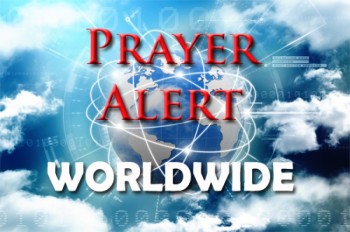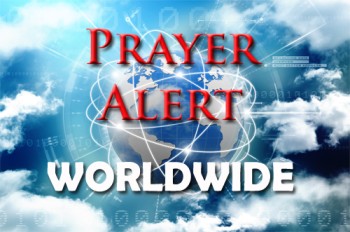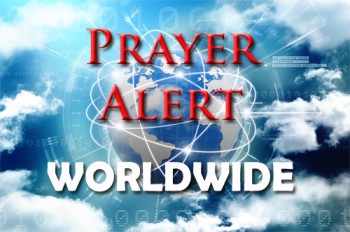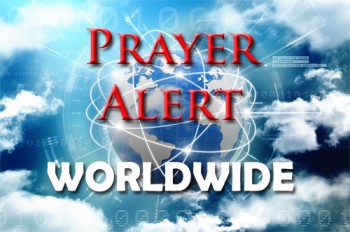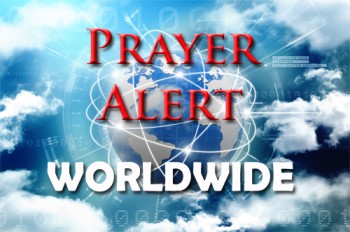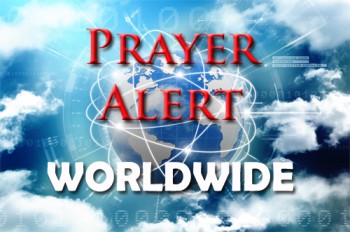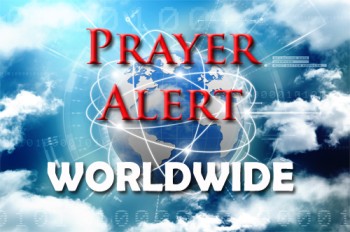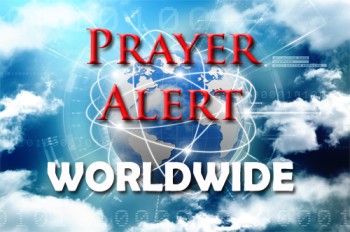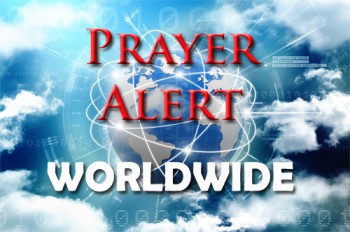Displaying items by tag: Africa
South Africa / Mozambique / Zimbabwe: 100+ dead after severe flooding
A national disaster has been declared in South Africa after weeks of torrential rain and severe flooding killed at least thirty people in the country’s north and caused widespread destruction. In Limpopo and Mpumalanga, the worst-hit provinces, homes, roads, and bridges have been washed away, leaving many families displaced. Heavy rains have also affected other provinces, while neighbouring Mozambique and Zimbabwe also suffered deadly floods, bringing the regional death toll to more than a hundred In Limpopo alone, damage is estimated at around £180 million. Rescue teams are still searching for missing people, including a five-year-old child believed to have been swept away when his home flooded. Hundreds of tourists and staff were evacuated from Kruger National Park during the crisis, highlighting the scale of disruption. As recovery efforts continue, communities face deep loss and an uncertain road ahead.
Uganda: troops in Kampala and internet services banned before election
On 15 January Uganda headed into a tense election as Yoweri Museveni sought a seventh term as president after nearly four decades in power. The final days of campaigning have been marked by heavy military deployments in the capital, Kampala, and a government-ordered suspension of mobile internet services, measures which opposition figures say signal growing authoritarianism. Museveni’s main challenger, Bobi Wine, has drawn strong support from younger, urban voters frustrated by unemployment, corruption and limited political change. Security forces say their presence is intended to prevent violence, but rights groups are concerned about intimidation and force used against opposition supporters. While Museveni retains strong backing in rural regions and is expected to win, critics fear the process will lack credibility. The aging president's authority has become increasingly dependent on the military led by his controversial son, Muhoozi Kainerugaba. The election highlights deep divisions in Uganda, as many citizens long for peaceful transition, accountable leadership and hope for a more inclusive future.
Equatorial Guinea: US payment to accept deportees sharply criticised
The US government has made a $7.5 million payment to the government of Equatorial Guinea as it seeks agreements to deport migrants to third countries, prompting sharp criticism from a top Democratic senator. Jeanne Shaheen said the payment, drawn from a migration and refugee assistance fund, raises serious concerns about transparency and proper use of taxpayer money; it far exceeds all US aid given to the country in the past eight years. She questioned whether funds intended for humanitarian crises should be transferred directly to one of the world’s most corrupt governments. The State Department defended the move as part of implementing the Trump administration’s immigration priorities. The payment raises questions about how the government is enmeshing its deportation agenda with other foreign policy goals, as well as the international leaders it is willing to trust. Immigration advocacy groups have called the policy a reckless tactic which violates due process rights and can strand deportees in countries with long histories of human rights violations and corruption.
Burkina Faso: new coup attempt thwarted
Authorities in Burkina Faso say they have thwarted a new coup attempt, underscoring ongoing political instability in the West African nation. Officials said the alleged plot was uncovered late on 3 January before it could be carried out, with security forces remaining on high alert. In a televised address, Security minister Mahamadou Sana said the plan involved coordinated efforts to destabilise the country through targeted assassinations of civilian and military leaders, including the head of state, Captain Ibrahim Traoré (see). Investigations are continuing and arrests have reportedly begun, with those implicated expected to face prosecution. The government praised intelligence services for preventing what it described as another attempt to destabilise the country. The alleged plot is the latest in a series of claims of attempts to remove Captain Traoré, who himself seized power in 2022.
Morocco: response to severe winter emergency
Authorities in Morocco are confronting a severe winter emergency as freezing temperatures, heavy rainfall, snowfall, and flash floods impact large swathes of the country. In response, they have launched a nationwide relief operation covering 28 provinces, aiming to assist around 73,000 vulnerable households with food supplies, blankets, and essential aid. Red weather alerts warn of as much as 80 cm of snow in the High Atlas mountains, while orange alerts signal intense rainfall across central and northern regions. The extreme conditions have already proved deadly: flash floods in the coastal city of Safi killed at least 37 people, damaged homes, and swept away vehicles. To mitigate further harm, the government has mobilised road clearance teams, emergency monitoring centres, and provincial vigilance committees to maintain access to remote and high-altitude areas: residents are being urged to remina cautious, especially when travelling. The relief efforts reflect Morocco’s broader strategy to protect vulnerable communities and mitigate the impacts of what authorities describe as unusually severe winter weather.
Sudan: former Janjaweed commander sentenced by ICC for Darfur war crimes
The International Criminal Court (ICC) has sentenced former Janjaweed commander Ali Muhammad Ali Abd-Al-Rahman, better known as Ali Kushayb, to twenty years in prison for war crimes and crimes against humanity committed in Darfur in 2003–04. Convicted on 27 charges, he is the first person tried by the ICC for atrocities linked to the Darfur conflict. Judges found that he both ordered and personally participated in attacks aimed at ‘wiping out’ non-Arab communities, including killings, mass displacement and widespread sexual violence. Survivors testified to villages being burned and families destroyed. The ruling comes as Sudan faces renewed conflict, with the Rapid Support Forces (successors to the Janjaweed) accused of carrying out similar abuses today. While the ICC hopes the sentence will offer justice and deterrence, experts question its immediate impact, noting that millions of survivors remain displaced and key figures, including former president Omar al-Bashir, are still wanted. The verdict nevertheless stands as a significant acknowledgment of long-ignored suffering.
Mozambique: 100,000 forced to flee after attacks by armed groups
Nearly 100,000 people in northern Mozambique have fled in recent weeks as armed groups have stormed their villages, often at night. They have burnt homes, killed civilians, and forced families to escape without belongings or documents. Nampula province now faces a fourth major influx of displaced people in recent months, pushing already fragile host communities beyond capacity. Schools, churches, and open spaces are overflowing, while humanitarian workers are struggling to respond to simultaneous attacks in many districts. Violence linked to the so-called IS has already displaced more than 1.3 million people since 2017, and now threatens communities which have previously been safe refuges. UNHCR warns that current funding covers only half of what is required, and needs will rise sharply into 2026. Lacking adequate shelter, food, and water, some families are returning to unsafe areas simply because overcrowded conditions leave them no other choice.
Nigeria: mass kidnapping from a Catholic school
On 21 November, at St Mary’s Catholic School in Niger state, more than three hundred students were abducted in a mass kidnapping - the worst such attack recorded against a Catholic school in the region. Although fifty children managed to escape and have been reunited with their families, 253 students and twelve staff members remain captive. Parents of missing children are traumatised, anxiously searching for any sign of their loved ones. This kidnapping follows several recent attacks, including the abduction of over two dozen schoolgirls in Kebbi and of 38 people attending a church service in Kwara state (though these have now been rescued). These incidents come only a few weeks after Donald Trump spoke of ‘Christian genocide’, which the government denied (see) President Bola Tinubu has reassigned VIPs' bodyguards to core policing duties and ordered the recruitment of 30,000 new police officers, acknowledging that ‘many parts of Nigeria’ are not adequately policed. Church leaders and global voices, including the Pope, have called for urgent action to rescue the hostages and restore safety for Nigeria’s citizens. Many feel that the West doesn’t seem to care about this ongoing level of terrorism: see
Nigeria: danger of mass starvation in 2026
Northern Nigeria is facing a rapidly escalating hunger emergency as militant attacks make it too dangerous for farmers to work their land. According to a new World Food Programme (WFP) report, Nigeria is on track to experience the worst-ever food crisis in Africa next year, with an estimated 35 million people expected to suffer severe hunger. In Borno state, the centre of ongoing insurgencies, at least 15,000 people are projected to face catastrophic hunger including famine-like conditions, as it is now classified at the highest level of food crisis severity. Violence from armed groups has spread, including recent kidnappings and the arrival of an al-Qaeda-linked faction claiming attacks in Nigeria for the first time. The crisis has been intensified by a major reduction in humanitarian aid following Donald Trump’s decision to withdraw US funding from the WFP. Without renewed support, millions may be left without critical food assistance, deepening instability and human suffering across the region.
Malawi: faith leaders challenge high court decision on abortion
A recent High Court decision in Malawi has ignited significant national debate by ruling that a 14-year-old girl, pregnant due to rape, must be granted access to a safe abortion. The judgment held that denying such care violates protection under the Gender Equality Act, and that girls impregnated through sexual offences automatically qualify for legal abortion services. Faith leaders, including Catholics, Protestants and Muslims, have warned that the ruling could set a far-reaching precedent in a country where abortion remains almost entirely criminalised except to save the mother’s life. They argue that expanding legal access risks reshaping national policy without public consensus, and intend to challenge the decision through legal and governmental channels. Meanwhile, advocates for reform say restrictive laws force vulnerable women and girls toward unsafe procedures, contributing to maternal deaths, though data on abortion-related mortality remains contested. As both sides mobilise, Malawi faces a pivotal moment in balancing the protection of life with urgent concerns for justice, safety and healthcare for survivors of sexual violence.
